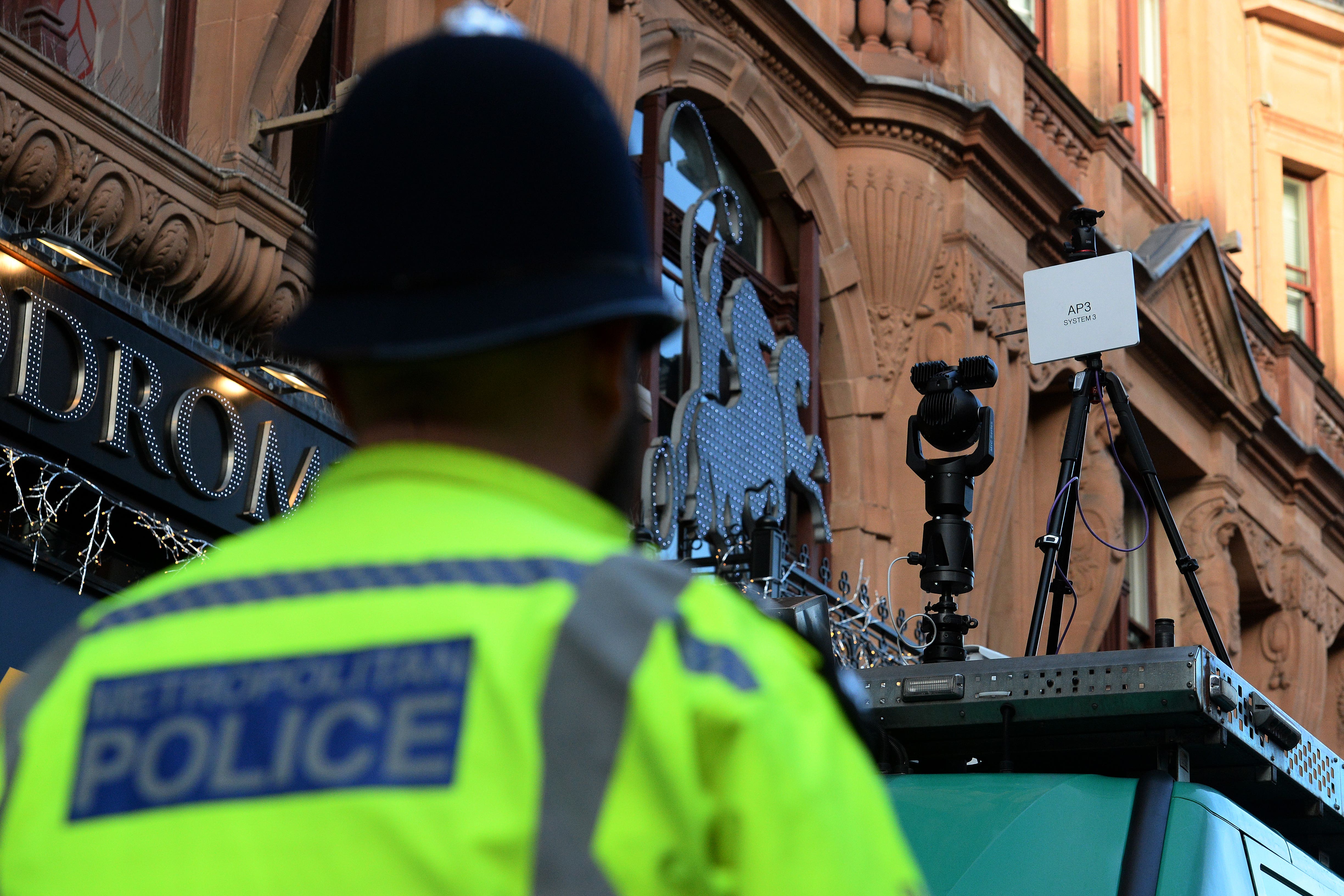Police widening use of live facial scanning with no clear legal grounds – peers
The Lords’ Justice and Home Affairs Committee has called into question the lawfulness of the use of live facial recognition.

Your support helps us to tell the story
From reproductive rights to climate change to Big Tech, The Independent is on the ground when the story is developing. Whether it's investigating the financials of Elon Musk's pro-Trump PAC or producing our latest documentary, 'The A Word', which shines a light on the American women fighting for reproductive rights, we know how important it is to parse out the facts from the messaging.
At such a critical moment in US history, we need reporters on the ground. Your donation allows us to keep sending journalists to speak to both sides of the story.
The Independent is trusted by Americans across the entire political spectrum. And unlike many other quality news outlets, we choose not to lock Americans out of our reporting and analysis with paywalls. We believe quality journalism should be available to everyone, paid for by those who can afford it.
Your support makes all the difference.Police use of live facial recognition surveillance is being expanded without clear legal grounds, peers have warned.
The Lords’ Justice and Home Affairs Committee has called into question the lawfulness of the deployment of the technology by forces across England and Wales.
In a letter to Home Secretary James Cleverly published on Saturday, the committee has called for tightened regulation and independent scrutiny of how the equipment is used.
Live facial recognition (LFR) cameras are used by police in some areas to analyse the faces of passersby and search for specific people.
We are an outlier as a democratic state in the speed at which we are applying this technology. We question why there is such disparity between the approach in England and Wales and other democratic states in the regulation of LFR
The committee said it acknowledged the technology may be a valuable tool in catching criminals but that it was “deeply concerned that its use is being expanded without proper scrutiny and accountability”.
There are “no rigorous standards or systems of regulation” in place for the deployment of LFR and “no consistency” in approaches to training officers in its use, peers said.
Baroness Hamwee, chairwoman of the committee, said: “Does the use of LFR have a basis in law? Is it actually legal? It is essential that the public trusts LFR and how it is used.
“It is fundamental that the legal basis is clear. Current regulation is not sufficient. Oversight is inadequate.
“Technology is developing so fast that regulation must be future-proofed. Police forces may soon be able to link LFR cameras to trawl large populations, such as Greater London, and not just specific localities.
“We are an outlier as a democratic state in the speed at which we are applying this technology. We question why there is such disparity between the approach in England and Wales and other democratic states in the regulation of LFR.”
Privacy campaigners and politicians have previously called for police to stop using facial scanning technology, citing concerns over human rights and potential for discrimination.
Civil liberties group Big Brother Watch has branded the tool “Orwellian” and suggested that any widening of its use would lack a clear democratic mandate.
But the Government last year announced it was considering expanding its use of the surveillance across forces and security agencies.
The Home Office argues that the technology frees up officers to spend more time out on the beat and working on complex investigations.
A Government spokesperson said: “Facial recognition, including live facial recognition, is a powerful tool that has a sound legal basis, confirmed by the courts. It has already helped the police to catch a large number of serious criminals, including for murder and sexual offences.
“The police can only use facial recognition for a policing purpose, where necessary, proportionate and fair, in line with data protection and human rights laws.”
The National Police Chiefs’ Council said it welcomed the committee’s scrutiny and would consider its recommendations, but that LFR is always used “proportionately and transparently”.
Individual chief constables are also held to account by their police and crime commissioners and mayors who examine operational decisions on LFR, the council added.
NPCC lead for facial recognition and the Metropolitan Police’s director of intelligence Lindsey Chiswick said: “The High Court and the Court of Appeal have previously recognised the existing legal basis for the police to use (LFR) technology – namely under common law in the UK.
“LFR is a tool which helps police to identify wanted individuals and it is always used proportionately and transparently, with communities told when it will be deployed.”